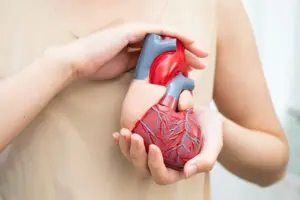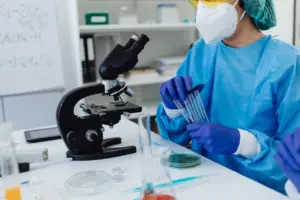
A group of researchers at AIG Hospitals in Hyderabad have developed an AI-powered tool capable of diagnosing fatty liver disease with 95–96% accuracy, using only basic blood tests and body measurements and at a fraction of the cost.
The tool, developed in collaboration with the Indian School of Business, analyses common parameters like complete blood count, liver function tests, HbA1c, and lipid profiles, along with BMI and waist circumference. Traditionally, fatty liver detection relies on advanced tools like FibroScan, which cost upwards of ₹1.2 crore and charge patients ₹4,000–₹5,000 per scan. The new model slashes this cost to just ₹500, The Hindu reported.
Also Read | Report says fatty liver on rise in India; raises alarm over undiagnosed chronic illnesses
“This is a huge leap in affordability and accessibility,” said Dr Rakesh Kalapala, Director of Endoscopy at the Centre for Obesity and Metabolic Therapy. “We’ve validated this AI model on over 10,000 patients and have begun community-level implementation in Telangana and Andhra Pradesh.”
The announcement was made during an awareness session at AIG ahead of Global Fatty Liver Day, observed annually on the second Thursday of June.
Experts at the session emphasised that fatty liver disease, once considered harmless, is now seen as a major warning sign for broader health risks. “Fatty liver is no longer just a liver issue—it’s a metabolic red flag,” said Dr D. Nageshwar Reddy, Chairman of AIG. “It worsens diabetes, raises heart disease risk, and can lead to liver cancer. It’s a silent epidemic.” Dr Anuj Kapadia, a cardiologist, added, “Many fatty liver patients don’t die of liver failure—they die of heart attacks.”
Dr Merugu Chandhana, an endocrinologist, shared that nearly 70% of her diabetic patients also have fatty liver, many with advanced stages. “These diseases are deeply interconnected,” she said.
Despite ongoing global research, no specific medication has yet been approved in India for fatty liver. The doctors reiterated that lifestyle changes remain the most effective treatment, stating that losing just 5% of body weight reduces liver fat, 7% reduces inflammation, and 10% can reverse fibrosis.








